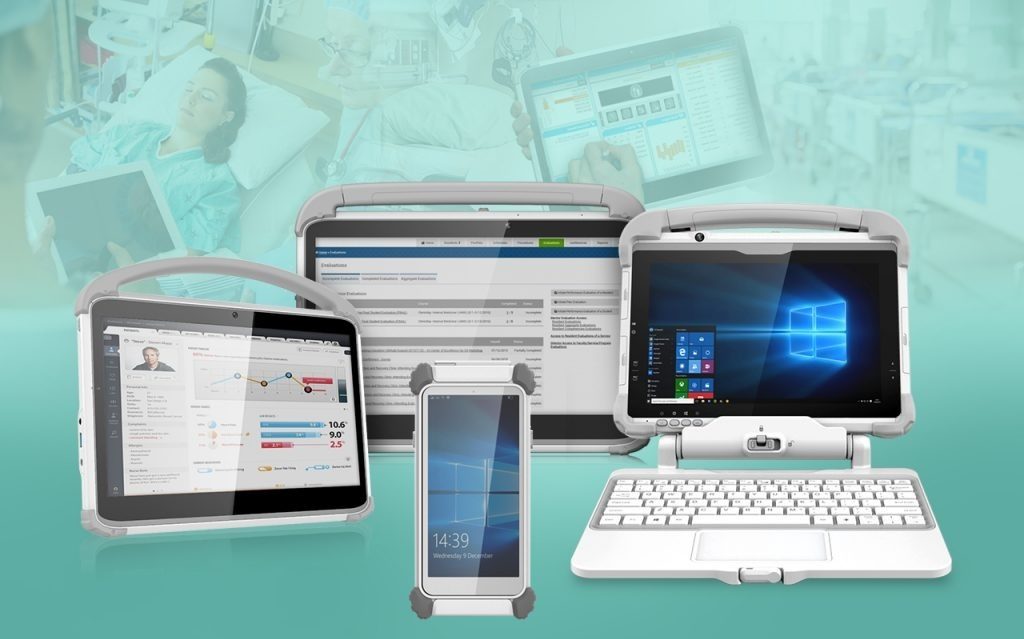
The need for seamless data access and interoperability has become paramount in today’s fast-paced healthcare industry. Medical professionals cannot afford to be limited by physical boundaries or the constraints of traditional systems when it comes to accessing patient data. This is where rugged medical tablets step in to bridge the gap. These advanced mobile computers have revolutionized healthcare by offering healthcare providers with a convenient and efficient way to access and update patient information, regardless of their location or the healthcare setting they are in.
By leveraging rugged medical tablets, healthcare providers gain instant access to patient data, enabling them to make informed decisions promptly. Whether in a clinic, operating room, post-care center, public health survey, or even a field hospital, medical professionals can rely on these portable computers to centralize and streamline data management. The ability to access patient records, test results, and treatment plans from various healthcare locations eliminates the need for manual data transfer or searching through physical files, saving valuable time and minimizing the risk of errors.
The Importance of Interoperability in Healthcare
Interoperability is the capability of diverse healthcare systems, devices, and applications to communicate and exchange data effortlessly. When it comes to medical tablets, interoperability empowers healthcare providers to effortlessly access patient data from multiple locations such as clinics, operating rooms, post-care centers, public health surveys, and field hospitals. This high level of connectivity and accessibility fosters collaboration among healthcare professionals and guarantees seamless continuity of care, ultimately resulting in enhanced patient outcomes.
A Versatile Solution for Healthcare Interoperability
Medical tablets are purpose-built durable computers designed to withstand the demanding environments of healthcare facilities. These tablets are equipped with powerful processors, ample storage capacity, and advanced connectivity options, making them ideal for seamless data exchange.
Here’s how rugged medical tablets contribute to enhancing healthcare interoperability:
a. Centralized Data Storage: Medical tablets provide a centralized data storage solution, enabling healthcare providers to access patient records, test results, and treatment plans from any location. This eliminates the need for physical paperwork and reduces the risk of data loss or misplacement.
b. Real-time Data Sync: Through cloud-based or secure network connections, rugged medical tablets ensure real-time synchronization of patient data. This allows healthcare professionals to access the most up-to-date information, facilitating accurate diagnoses, timely interventions, and better decision-making.
c. Mobility and Portability: Unlike traditional desktop computers or laptops, rugged medical tablets offer mobility and portability. Medical professionals can carry these lightweight devices with them or use them mounted on slim carts ready to pop out as needed throughout their workday, seamlessly transitioning from one healthcare setting to another. This flexibility enables immediate access to patient data, even in critical situations such as emergency rooms or field hospitals.
d. Enhanced Communication and Collaboration: Medical tablets support various communication channels, such as video conferencing, secure messaging, and telehealth applications. These features foster effective collaboration among healthcare providers, enabling them to consult with specialists, share insights, and collectively develop personalized treatment plans.
Security and Privacy Measures
While the benefits of medical tablets for healthcare interoperability are undeniable, it’s essential to address the concerns regarding data security and patient privacy. Rugged medical tablets have robust security measures, including encryption protocols, user authentication, and strict access controls. These measures ensure that patient data remains confidential and protected from unauthorized access or breaches.
In the ever-evolving healthcare landscape, interoperability plays a vital role in improving patient outcomes. Rugged medical tablets offer a comprehensive solution to the challenges of accessing and centralizing patient data across different healthcare settings.
With their ability to store and synchronize data, facilitate mobility, and enhance communication, these medical tablets empower healthcare providers to make informed decisions and deliver personalized care, regardless of their location. By embracing the power of medical tablets for interoperability, healthcare organizations can pave the way for a more connected and efficient healthcare ecosystem.

